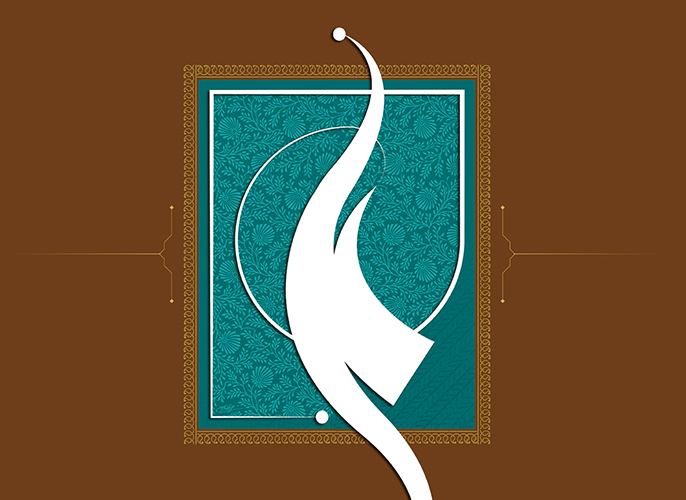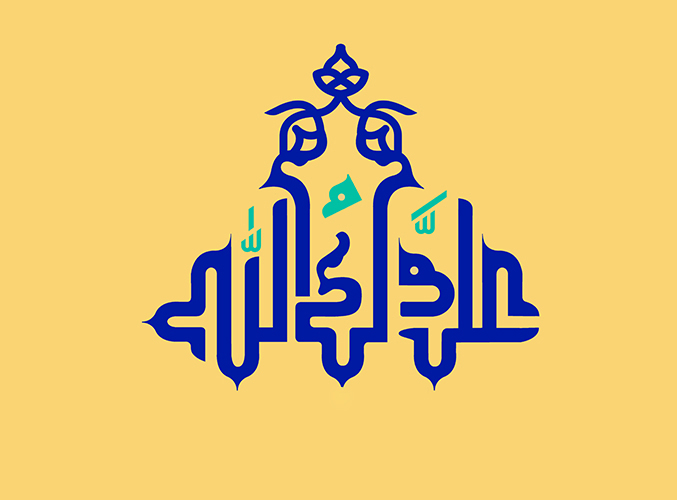THE SECOND EVIDENCE
Narrating the life history of Afif Kandi, Ibne Hajar (in Al-Isabah), lbne Abdul Bir (in Isti'ab) and many other scholars of history have quoted him to have said: "During the Age of Ignorance I once went to Makkah.
My host was Abbas son of Abdul Muttalib and both of us arrived in the precincts of the Holy Ka'bah. Suddenly I saw that a man came and stood by the side of the Ka'bah. Then a boy arrived and stood on his right side. Soon after that I saw a woman came and stood behind them. I saw the boy and the woman performing ruku' and sujud (kneeling and prostration) in imitation of the man.
This unprecedented scene inspired me to enquire from Abbas about it. He said: "That man is Muhammad son of Abdullah and that boy is his cousin and the woman standing behind them is the wife of Muhammad. Then he added: "My nephew says that a day will come when he will control the treasuries of Kisra' and Kaiser'.
By Allah, there is no follower of this religion on the face of the earth except these three. Then the narrator says: "I wish that I had been the fourth of them!"
Since the above narrative is not directly concerned with Ali, even those persons, who fail to narrate his virtues have quoted it.
Amongst the traditionalists only Bukhari has thought it proper to declare it weak', but his attitude towards the progeny of the Holy Prophet's household is quite well-known. The readers can study the said narrative in detail in the books mentioned below.1
THE THIRD EVIDENCE
In the sermons and dissertations of Ali we usually come across the following and other similar sentences:
I am the servant of Allah and the brother of the Holy Prophet and the greatest truthful one, and none will utter this sentence after me except one who is a liar. I offered prayers along with the Holy Prophet for seven years2 before anyone else did so.
The author of al-Ghadir (vol. III. page 222) has quoted authorities for these narrations from the hooks of traditions and history and we dispense with quoting the same briefly:
THE FOURTH EVIDENCE
The following traditions of the Holy Prophet narrated by successive witnesses with various explanations have been quoted to this effect:
"The first person who will meet me on the pool of Kausar' and the first person who embraced Islam is Ali son of Abu Talib.
You may also study the authorities for these traditions in the third volume of al-Ghadir', page 320. The evidences for both the parts have reached the stage of consecutiveness and when a person studies these hadiths without any bias he becomes definite about Ali being the foremost among the believers. He does not, therefore, prefer at alt the other two statements which are in a minority from the point of view of narration.
The number of the supporters of the first statement (viz. Ali was the first person to embrace Islam), who consist of distinguished companions of the Prophet and tabe'in (companions of the companions of the Prophet) exceeds sixty.
So much so that even Tabari3 who has left the matter open and has contented himself only with quoting the statement says that Ibn Sa'id asked his father: "Was Abu Bakr the first person to embrace Islam? His father replied: No."
Before he embraced Islam more than fifty persons had come round to the prophet's way. However , his Islam was superior to the islam of others".
1- Tarikh-i Tabari, vol. II, p. 211; Tarikh-i Kamil, vol. II, pp. 31 - 38, andA'lâmul wara, page 25.
2- 1n some of the narratives the period has been mentioned to be five years and on the basis of numerous indications it may be said that a part of this period preceded tb the prophetic mission.
3- Tarikh-i Tabari, vol. 11, page 215


















